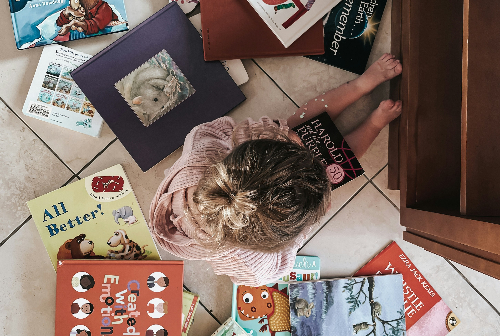Wasn’t yesterday October 1? I think these posts keep getting more and more random, but here were my favorite articles this month.
The Dad-Joke Doctrine
Ashley Fetters
The Atlantic
An entertaining deep dive into the origin and history of Dad-jokes, including how (or if) Dad-jokes play out in other cultures. This was just a pleasant read in the midst of so much seriousness.
This Is the Most Bizarre Grammar Rule You Probably Never Heard Of
Minda Zetlin
Inc.
I took French in middle and high school, and I remember there being a grammatical rule about the order of adjectives- something about beauty, age, goodness, and size determined where the adjectives were placed in the sentence. So it makes sense that there would be a similar rule for English (and likely most languages), but I never thought about it until reading this article.
ByteDance knew kids could get addicted to TikTok in 35 minutes, and harmed their development
Ben Lovejoy
9to5Mac
Research continues to come out on the detrimental effects of social media on children and teenagers, and it’s clear that social media companies are doing nothing to combat these effects. Not that I expect them to—it’s no surprise that big media companies value dollars over everything else. But articles like this continue to convince me that it’s primarily my responsibility to protect my children and set boundaries on their technology usage.
Emptying the Nest in Hope, Not Fear
Gretchen Ronnevik
Christianity Today
Are today’s parents more fearful than other generations? Or are the fears just different? I don’t know the answer to that question but this article encourages parents not to launch their kids out with fear or uncertainty, but with hope and trust in the Lord’s faithfulness to our kids. We are so far, and yet so near, from being empty nesters, but I always appreciate articles like this that help me prepare for the future.
Why Scruffy Hospitality Creates Space for Friendship
Jack King
KnoxPriest
This article was part-encouragement, part-kick-in-the-pants. We have people over several times a month and though I would verbalize total agreement with the words of Jack King in his article, my heart does otherwise anytime people are about to come over. While the state of my house doesn’t typically prevent me from having people over, I stress far too much over the cleanliness and organizational state of my house, sometimes to the detriment of my relationships. This was a much needed read.
Hospitality is not a house inspection, it’s friendship. In an age of ever-increasing loneliness, in a time when Americans eat 40% of their meals by themselves, can I allow myself to value tidiness over community? Sadly, I’m sensing there’s pride lurking across the threshold of my welcoming mat.
ChatGPT is Changing the Way We Write. Here’s How—And Why It’s a Problem
Ritesh Chugh
The Conversation
As a writer, working in the education sphere, married to a professor, ChatGPT comes up in more conversations than I would like. I’m naturally skeptical of it, partly because I see no need for it, partly because it could replace me, and partly because there are integrity issues at stake with it. I have used it extremely sparingly for very low-stakes things like brainstorming lists or wording for invitations. While it’s not necessarily a surprise that ChatGPT writing is less personal, I did find it interesting to read the list of words that have increased in academic writing since ChatGPT launched.
Lessons about loss, living, and loving together
Nathan Finn
World
The aftermath of Hurricane Helene has been so devastating for a region that isn’t used to seeing extreme weather of really any kind. However, in the absolute worst of circumstances, it’s encouraging to see how communities come together to serve one another.
Let’s Stop the Kid Jokes
Moriah Lovett
TGC
This article touches on something I’ve pondered for a while. While I’m not sure I concur with every point in this article, I do think it’s important to consider how we talk about our children— in private and in public, in front of them or “behind their back.” It can be so easy to think of them as not-quite-real people, to presume upon their ignorance, or ignore their feelings in order to get a laugh or commiserate about the harder parts of parenting. But I’ve learned the hard way that my kids are always listening, so I want my words to them and about them to be life-giving—for their sake and my own.




